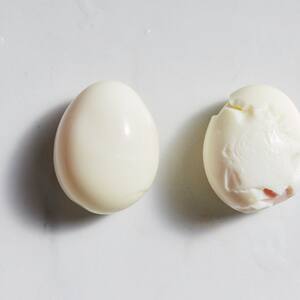Believe it or not, it’s longer than you think. That carton of eggs has been sitting in the fridge for a while. They are a few days past their expiry date.
Are they still okay to eat ? It’s the stuff of common domestic disagreements, frantic internet searches and self-doubt. How long do eggs really last, anyway? According to the US Department of Agriculture, it’s longer than you think. Expiry dates are often just recommendations and for some ingredients (say, animal proteins like beef, chicken and pork), it’s best to consume them on the sooner side.

But eggs give you some grace. In the shell, they can last three to five weeks from the day they come home, and that may even outlast the date on the carton. Here’s even more on best practices for eggs.
How should I store my eggs? Put them in the fridge as soon as you get home. Make sure that your fridge temperature is set to 4.4C or colder, and that you don’t keep your eggs in the door, which tends to be warmer than the shelves.
Don’t keep eggs at room temperature for more than two hours. Why are eggs stored in the fridge in the United States? In parts of Europe and elsewhere, eggs are often left on the kitchen counter. That has to do with the natural exterior coating kept on the eggs, which protects them from microbes, but also can harbour salmonella.
That’s why egg producers in the US have washed and refrigerated their eggs since the 1970s. Doing so removes that protective cuticle that helps keep any dangerous bac.
















